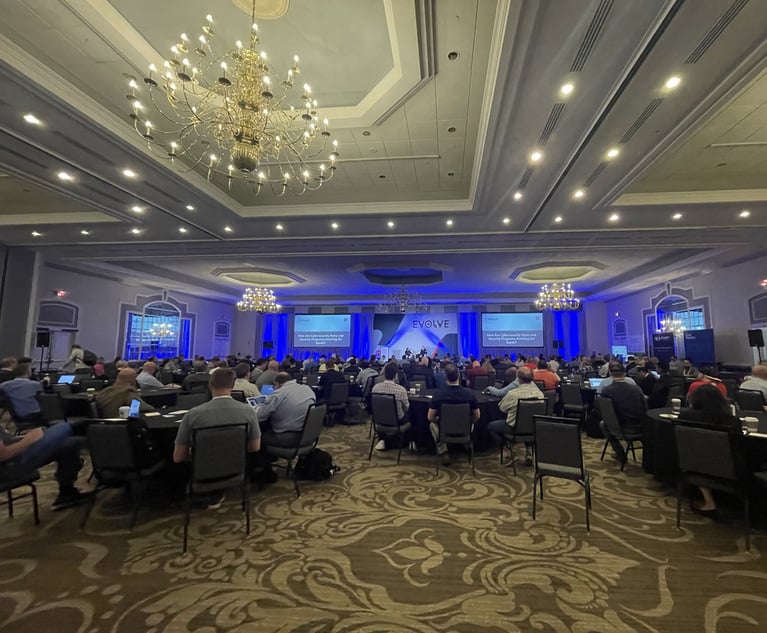(Bloomberg) -- The U.S. air-traffic control system would be spunoff to a nonprofit corporation and airline passengers wouldn’t beallowed to talk on mobile phones under sweeping legislationunveiled Wednesday to set aviation policy for the next sixyears.
|The job of guiding planes would be taken away from the Federal AviationAdministration and put under the auspices of a new nonprofitfunded by fees on commercial flights that would replace mostcurrent airline taxes, said Representative Bill Shuster, chairmanof the House Transportation and Infrastructure Committee.
|"I believe that what we are doing is taking this organizationout of a bureaucracy that doesn’t manage the costs well," saidShuster, a Pennsylvania Republican, in an interview. "Taking itout, I think, you can have a much more efficient corporation."
|The measure Shuster introduced also would ban passengers fromtalking on mobile phones while in the air, force carriers to refundbag fees if luggage arrives too late, and overhaul the way newaircraft are approved to make U.S. manufacturers morecompetitive.
|Within minutes of Shuster’s press conference, the National Air TrafficControllers Association, a union representing almost 15,000controllers, announced it was supporting Shuster. The stance was abreak in a decades-long policy opposing such a move.
|Democrats on Shuster’s committee called the plan poorly designedand said such a major transition may cause delays in the adoptionof new air-traffic technology known as NextGen, which usessatellite-based navigation instead of radars.
|NextGen setback
|“I believe that at this critical point in acquiring the NextGentechnology, that it would be a huge disruption and a setback forthat progress,” Representative Peter DeFazio, an Oregon Democratwho is his party’s highest-ranking member on the committee, said ina briefing.
|DeFazio said he plans to introduce separate amendments when thebill is debated next week that would reform FAA without splittingoff its air-traffic function.
|The legislation will test Shuster’s reputation for musteringbroad support on transportation measures in an increasingly dividedCongress.
|Political interference
|But Shuster said the measure would remove the system frompolitical interference and federal budget woes, thereby making itmore efficient and able to adopt new technology. The FAA wouldcontinue to set air-traffic regulations and provide safetyoversight. He said he plans to hold a hearing next week.
|“I’m somewhat confident, somewhat optimistic,” said Shuster, whoannounced plans to introduce the air-traffic legislation in June.“The argument is on our side to do this, to do it right.”
|Related: Drone-plane safety incidents seen quadrupling, U.S.FAA says
|The last time lawmakers took up an FAA bill it was mired inyears of delay that led to a partial agency shutdown in 2011 beforeit became law in 2012. The FAA was also disrupted in 2013 byautomatic budget cuts known as sequestration triggering furloughsof air-traffic controllers and flight delays. The law authorizingthe FAA allows the agency to operate through March 31.
|Funding issues
|Giving the new nonprofit the ability to raise money by feeswould smooth the agency’s funding issues, Shuster said. One of thereasons some lawmakers oppose the proposal is that it would reducetheir control over the agency’s budget, he said. Private aircraftowners, including business-jet operators, would be exempt from thefees, retaining existing fuel taxes so they wouldn’t pay more underthe new system, he said.
|The chairmen of the budget-writing appropriations committees,Senator Thad Cochran, a Mississippi Republican, and RepresentativeHal Rogers, a Kentucky Republican, have each gone on recordopposing the plan. They were joined by the highest-rankingDemocrats on those committees.
|“While FAA can and should improve and accelerate the developmentof modernized air-traffic systems, we do not believe the solutionis less oversight and less accountability,” Rogers and three otherAppropriations leaders wrote in a letter Monday to Houseleadership.
|NextGen impact
|The air-traffic provision may also create uncertainty forcompanies building the $42 billion air-traffic upgrade knownas NextGen. These companies include Harris Corp., Lockheed MartinCorp. and Raytheon Co.
|A similar proposal to shift control of air traffic to acorporate entity failed in the 1990s under then-President BillClinton after it was attacked by Democrats and unions. Since then,most of the world’s industrialized nations — including Canada,Australia, the U.K. and Germany — have shifted to suchsemi-private control.
|Related: Cockpit cameras would improve safety onairplanes
|Prior proposals were opposed by NATCA, the controllers’ union.President Paul Rinaldi and other union officials had made numerousvisits to Canada and other nations with similar air- trafficoperations. Union members in recent years had been frustrated byFAA budget uncertainty, Rinaldi has said.
|“After extremely careful review, consideration, anddeliberation, we have reached a decision: NATCA supports thisbill,” he said in the union’s release.
|Pilots disagree
|The Air Line PilotsAssociation, the largest pilot union, said in a statement itwould not endorse the legislation because it fails to advanceaviation safety. The group said the measure doesn’t address theserious risks presented by the unregulated carriage of lithiumbatteries, creates an unfair funding system for the new air-trafficorganization and fails to protect access to the cockpit throughreinforced doors. DeFazio vowed to include language allowing thegovernment to enact stricter rules on bulk lithium batteryshipments.
|Most U.S. airlines support Shuster’s plan, the Airlines forAmerica trade group said in a statement. The new system could shavebillions of dollars off the costs of the system in terms of fewerdelays, the group said. Delta Air Lines Inc., which split off fromA4A last year, opposes the plan, saying it will cost consumers moreto fly.
|The bill, H.R. 4441, contains dozens of aviation policymeasures governing everything from airlines to tiny unmannedaircraft.
|After lobbying by aircraft manufacturers such as Boeing Co.,Shuster is proposing smoother approvals of new aircraft designs.Companies would get more leeway to sign off on the safety ofequipment with their own employees instead of FAA inspectors,expanding an existing program.
|Passenger protection
|This proposal, along with several other key provisions unrelatedto the air-traffic measure, was negotiated with Democrats on theHouse transportation panel and has broad support, Shuster said.
|The legislation would prohibit voice calls on flights, whichmany lawmakers fear would make airline cabins even louder andchaotic, Shuster said. New technology makes mobile calls easierfrom the air and the Department of Transportation has asked forcomments on whether to allow such calls. They currently aren’tpermitted.
|Airlines would also have to refund fees they charge for carryingbags on flights if the luggage arrives more than 24 hours late ondomestic flights under the proposal. Airlines would have to notifyfamilies before they book tickets if they are assigned seats thataren’t together on the plane.
|Shuster has also added several provisions to speed the adoption of civilian drones. Thelegislation would promote more use of the six drone test siteschartered by the FAA, push for more research on technology to allowunmanned aircraft to automatically steer clear of each other andallow easier approvals for commercial use.
|--With assistance from Derek Wallbank.
|Check us out on Facebook and give us a Like!
|Copyright 2018 Bloomberg. All rightsreserved. This material may not be published, broadcast, rewritten,or redistributed.
Want to continue reading?
Become a Free PropertyCasualty360 Digital Reader
Your access to unlimited PropertyCasualty360 content isn’t changing.
Once you are an ALM digital member, you’ll receive:
- All PropertyCasualty360.com news coverage, best practices, and in-depth analysis.
- Educational webcasts, resources from industry leaders, and informative newsletters.
- Other award-winning websites including BenefitsPRO.com and ThinkAdvisor.com.
Already have an account? Sign In
© 2024 ALM Global, LLC, All Rights Reserved. Request academic re-use from www.copyright.com. All other uses, submit a request to [email protected]. For more information visit Asset & Logo Licensing.








